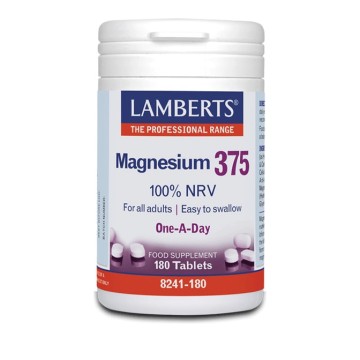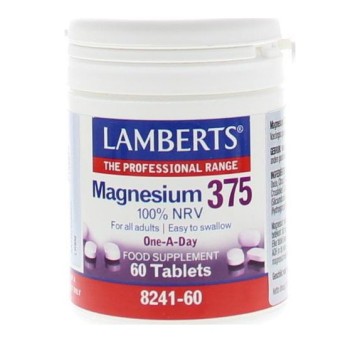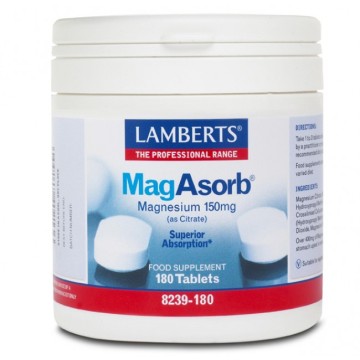The
magnesium it is a vital mineral for the body, as it contributes to the proper structure of bones and is necessary for the proper functioning of nerves, muscles and many other bodily functions. Most people get the necessary amount of magnesium through their diet. However, in cases of low magnesium levels, which can be linked to various diseases such as osteoporosis, high blood pressure, and diabetes, supplementation may be required.
Rich dietary sources of magnesium include legumes, whole grains, vegetables such as broccoli and leafy greens, as well as seeds and nuts such as almonds. Also, chocolate, coffee and dairy products are good sources of magnesium. In medicine, magnesium is used to treat various conditions such as constipation, heartburn, low levels of magnesium in the blood, as well as some heart disorders.
Magnesium Benefits
The
magnesium it is an essential metal that offers multiple
benefits for the health.
- Improving muscle function: Magnesium helps to contract and relax muscles, thus reducing the risk of cramps and spasms.
- Support of nervous function: Enhances nerve function by regulating neurotransmitters, helping to protect against overexertion.
- Promoting heart health: Magnesium can help prevent heart attacks and high blood pressure by easing heart muscle contraction and regulating blood pressure levels.
- Improve digestion and prevent constipation: Magnesium promotes healthy digestive function and helps prevent constipation by speeding up digestive movement.
- Support the antioxidant process: Acts as a coenzyme in various reactions that promote antioxidation, protecting the body from the harmful action of free radicals.
- Improving stress management and mental health: Can reduce symptoms of anxiety and depression, improving overall mental well-being.
- Enhance bone integrity: Magnesium is critical for maintaining bone health and helps absorb calcium, which is essential for good bone health.
Recommended Magnesium Intake
Children
- 1-3 years: 80 mg/day
- 4-8 years: 130 mg/day
- 9-13 years: 240 mg/day
Women
- 14-18 years: 360 mg/day
- 19-30 years: 310 mg/day
- 31 years and older: 320 mg/day
Men
- 14-18 years: 410 mg/day
- 19-30 years: 400 mg/day
- 31 years and older: 420 mg/day
Pregnant
- Under 19 years of age : 400 mg/day
- 19 to 30 years : 350 mg/day
- 31 years and older: 360 mg/day
Breastfeeding
- Under 19 years of age : 360 mg/day
- 19 to 30 years : 310 mg/day
- 31 years and older: 320 mg/day
Foods rich in Magnesium
The
magnesium found in many
foods such as:
- Legumes
- Dark green foliage vegetables
- Nuts and seeds, especially pumpkin seeds
- Whole grains
- Fish, poultry and beef
- Γάλα and yoghurt
However, only 30-40% of dietary magnesium is absorbed by the body. Additionally, a diet of highly processed foods may not provide sufficient magnesium, especially for those with dietary restrictions or an unbalanced diet.
Magnesium Deficiency Symptoms
Η
lack of magnesium it happens when we don't get enough magnesium for a long time. To confirm this condition, a blood test is required.
In the early stages, it is common for them to be absent
symptoms or appear only mildly. As the deficiency progresses, symptoms become more severe and may include:
- Motion sickness
- Fatigue
- Numbness
- Muscle cramps
- Constipation
In more severe cases, they may manifest
epileptic seizures and
heart problems, such as an abnormal heart rhythm.
Although dietary magnesium deficiency is rare in healthy adults, certain groups are more at risk, such as people with gastrointestinal problems, type 2 diabetes, alcoholism, and the elderly.
When is the best time to take magnesium?
To improve your sleep,
the best time to take magnesium it's evening, about 30 minutes before going to bed. For other uses, you can take magnesium at any time of the day,
either with or without food. However, it is important to check what other supplements or medications you are taking at the same time to avoid interactions. In particular, calcium can interfere with magnesium absorption, so prefer to take it at a different meal than magnesium.
Possible magnesium interactions
Some medications can lower magnesium levels in the body. Accordingly, magnesium supplements may affect the absorption and performance of certain medications.
- Antibiotics: Magnesium supplements may decrease the absorption of tetracyclines, fluoroquinolones, and nitrofurantoin.
- Antihypertensives: Magnesium can cause a further decrease in blood pressure, so patients taking antihypertensive drugs should consult a doctor before taking magnesium supplements.
- Diuretics: These drugs increase magnesium excretion, increasing the risk of deficiency.
- Medicines to regulate blood sugar: Magnesium supplements may enhance the absorption of drugs such as sulfonylureas. The drug metformin can also lower magnesium levels over time.
Related Products:
PHARMACIST, M.Sc.
CEO Wecare IKE




















